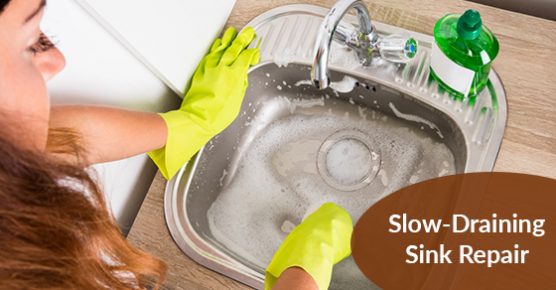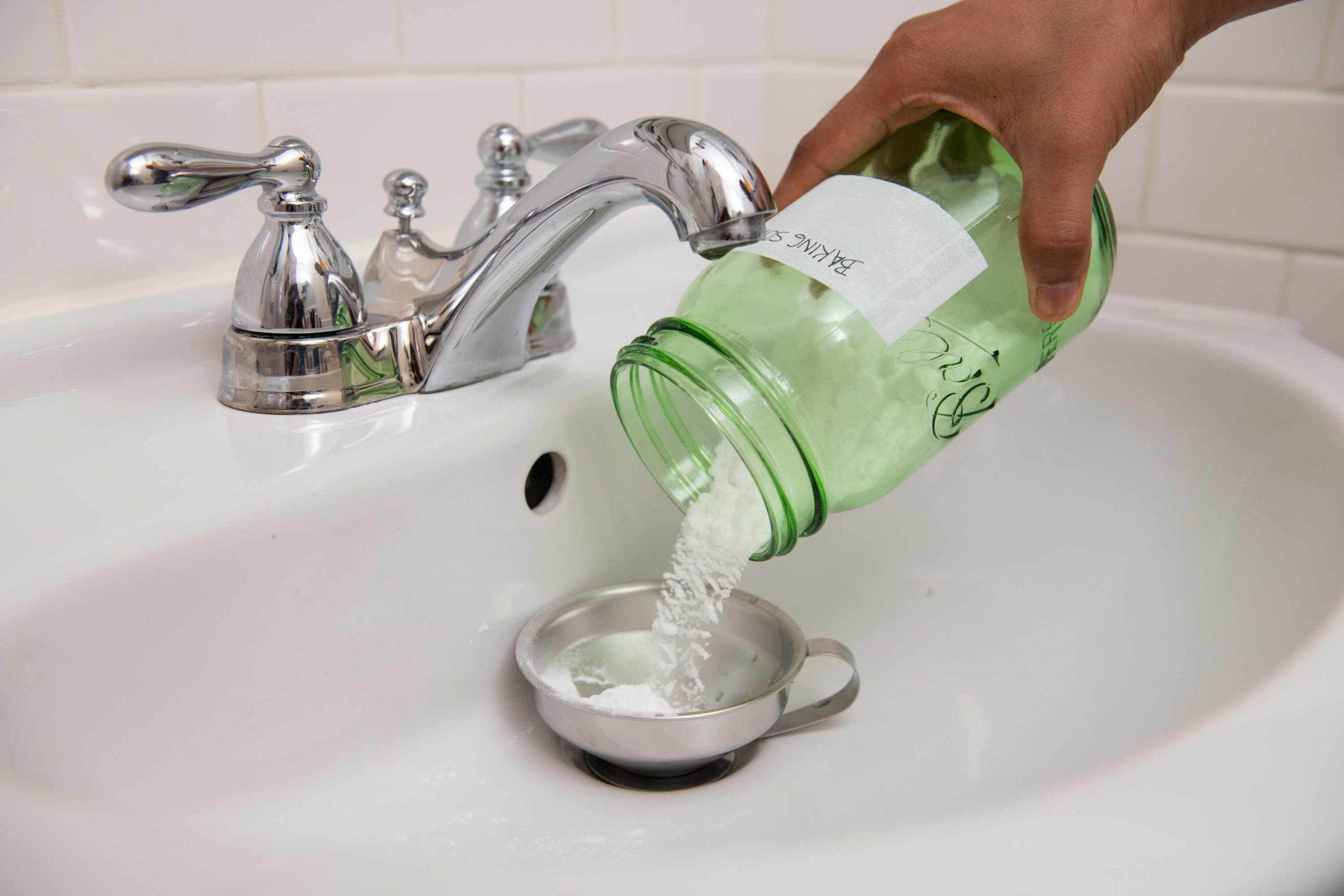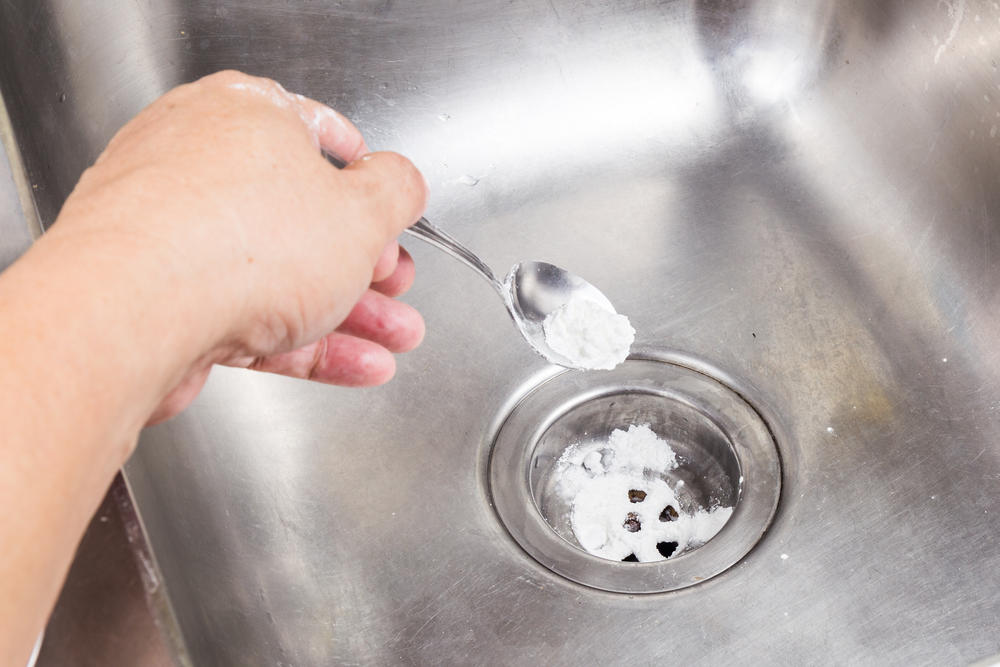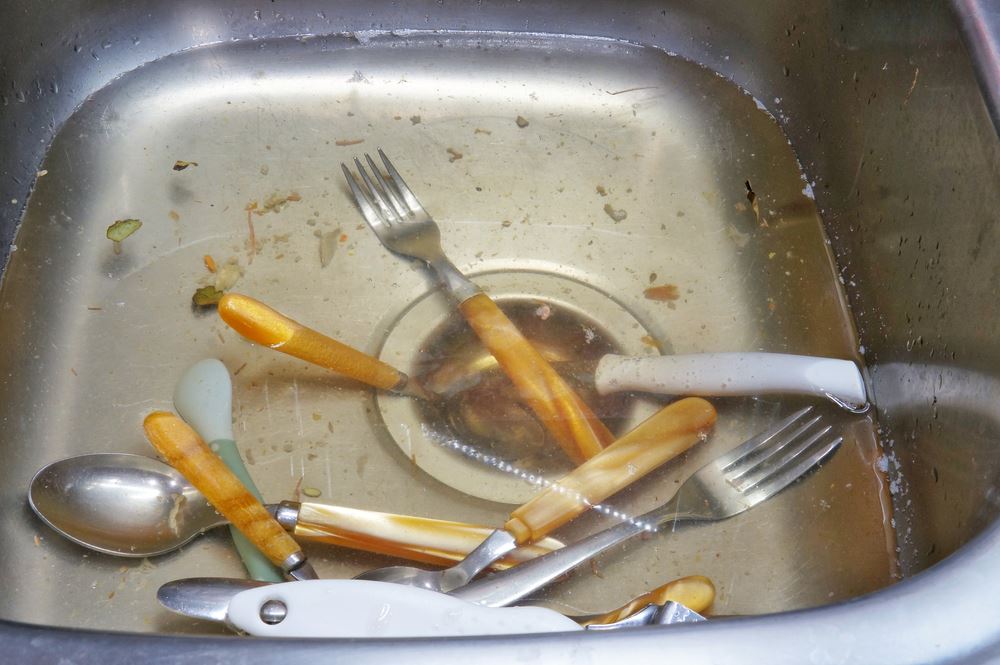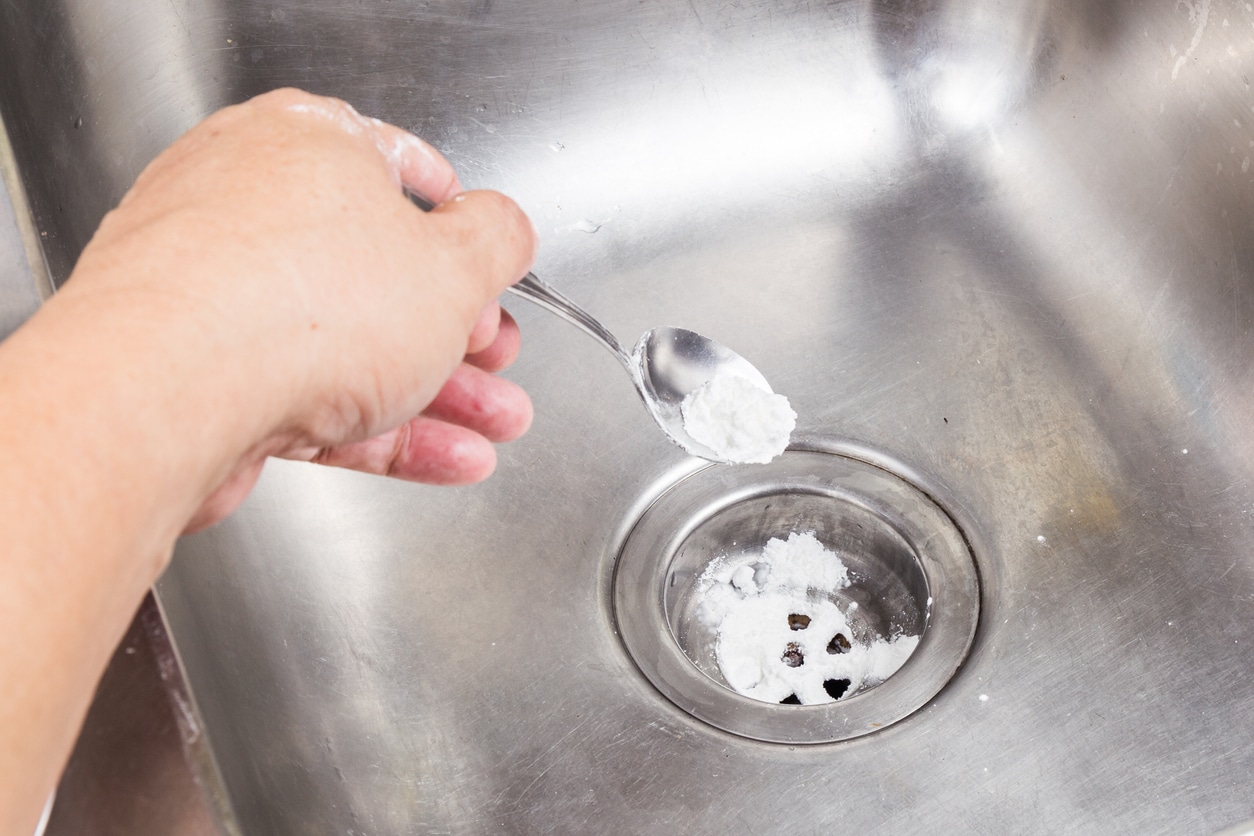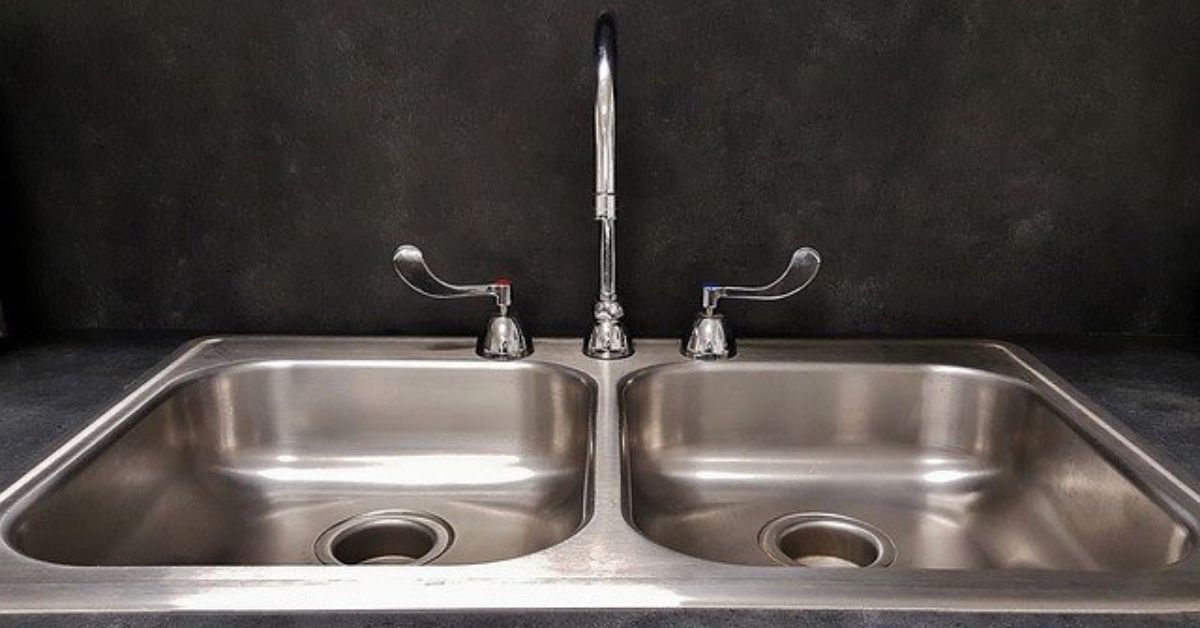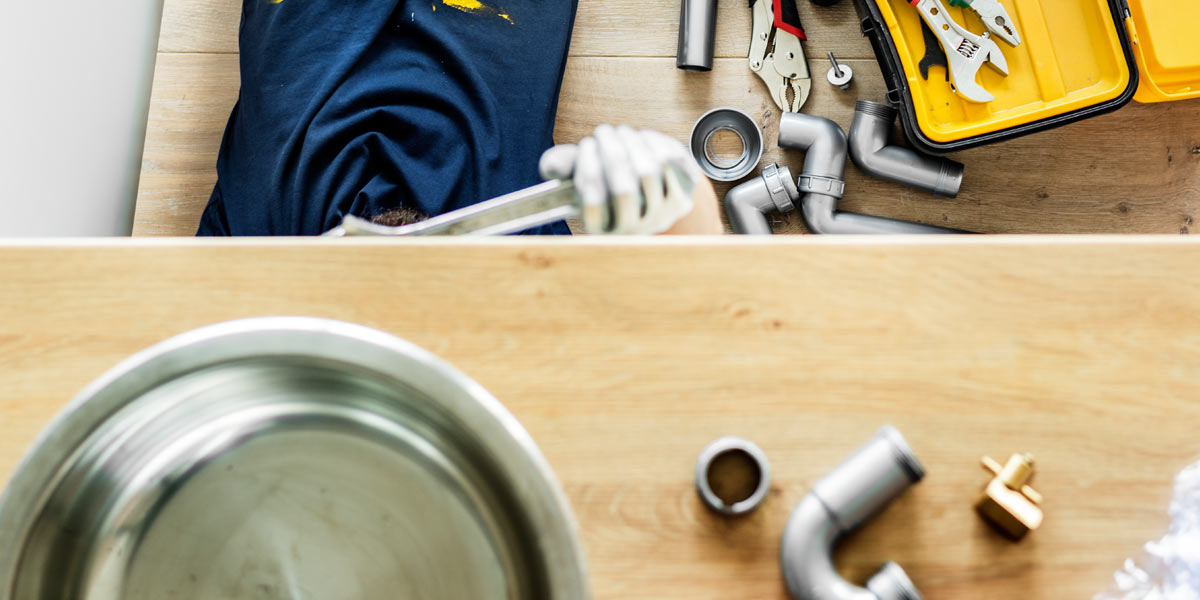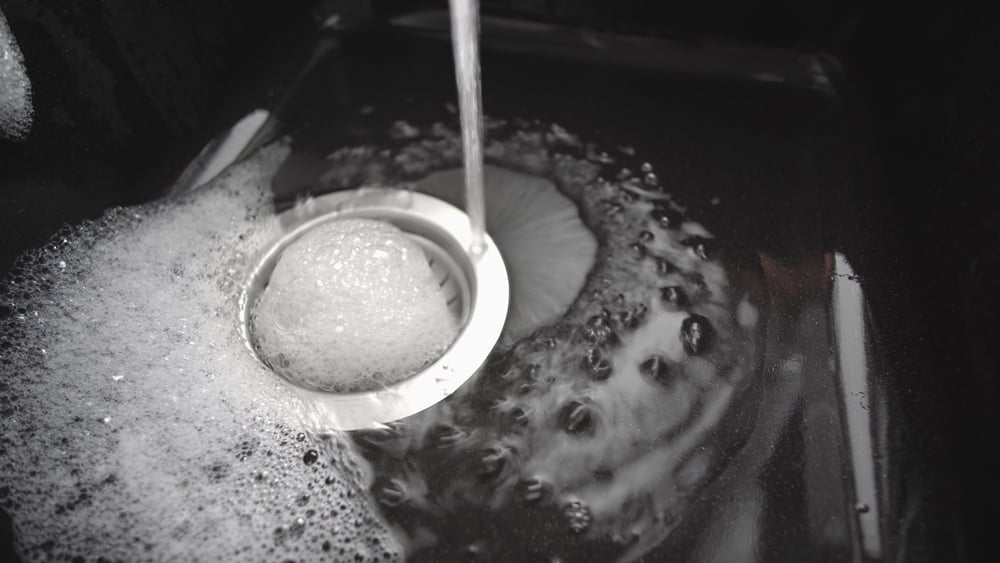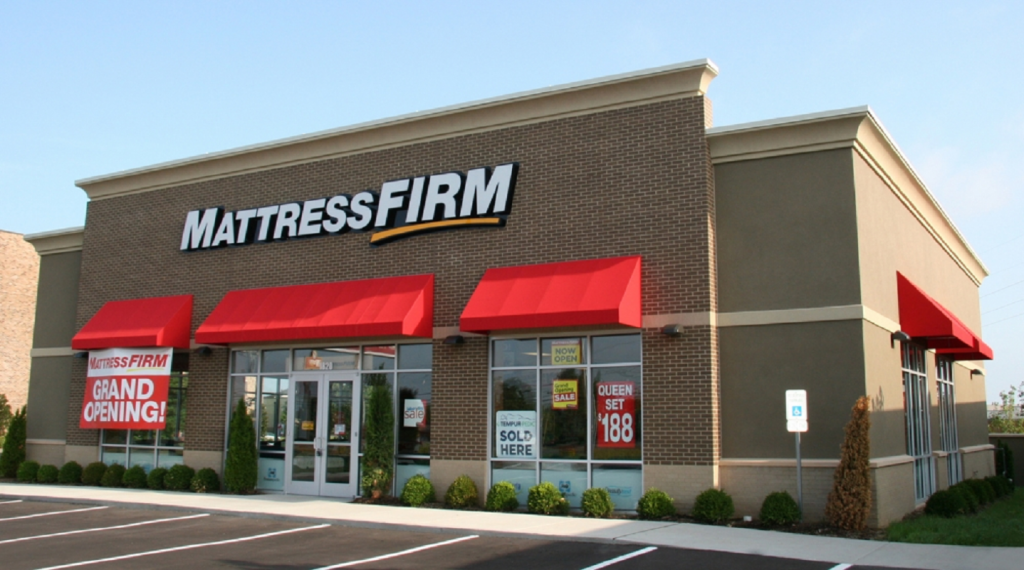Unclog a Kitchen Sink
If you've noticed your kitchen sink is draining slower than usual, it's important to address the issue before it gets worse. A slow-draining kitchen sink can be a major inconvenience, making it difficult to wash dishes, clean, and use your sink for everyday tasks. But don't worry, there are several easy and effective ways to unclog your kitchen sink and get it draining properly again.
How to Fix a Slow-Draining Kitchen Sink
Before trying any DIY solutions, it's important to understand the common causes of a slow-draining kitchen sink. One of the most common causes is a buildup of food particles, grease, and other debris in the drain. Over time, this buildup can clog the pipes and slow down the draining process. Another common cause is a blocked air vent, which can prevent proper drainage.
To fix a slow-draining kitchen sink, you can try using a plunger to remove any clogs in the pipes. Place the plunger over the drain and push down firmly, then pull up quickly. Repeat this process several times until the clog is dislodged. You can also try using a plumbing snake or auger to break up and remove any stubborn clogs.
DIY Solutions for a Slow-Draining Kitchen Sink
If the plunger and plumbing snake methods don't work, there are a few DIY solutions you can try. One popular method is using a mixture of baking soda and vinegar to break down and dissolve any clogs in the pipes. Simply pour half a cup of baking soda down the drain, followed by half a cup of vinegar. Let it sit for about 15 minutes, then run hot water down the drain to flush out the clog.
You can also try pouring boiling water down the drain to help loosen and remove any buildup. Another option is to use a mixture of hot water and dish soap, which can help break down grease and other debris in the pipes. Let the mixture sit for a few minutes before running hot water down the drain.
Common Causes of a Slow-Draining Kitchen Sink
In addition to food particles and grease buildup, there are a few other common causes of a slow-draining kitchen sink. One of these is a broken or damaged garbage disposal. If you have a garbage disposal, make sure to use it properly and avoid putting any large or hard-to-breakdown items down the drain. Another common cause is a damaged or collapsed pipe, which may require professional plumbing services to fix.
Another potential cause is a blocked air vent, which can prevent proper drainage. The air vent is typically located on the roof of your house and allows air to flow through the pipes, preventing clogs and keeping the pipes functioning properly. If the air vent is blocked, it can cause water to drain slowly or not at all.
Tips for Preventing a Slow-Draining Kitchen Sink
The best way to deal with a slow-draining kitchen sink is to prevent it from happening in the first place. Here are a few tips to help keep your kitchen sink draining smoothly:
1. Don't pour grease down the drain: Grease can solidify in the pipes and cause clogs. Instead, pour it into a heat-safe container and dispose of it in the trash.
2. Use a drain catcher: A drain catcher can help prevent food particles and other debris from going down the drain and causing clogs.
3. Run hot water after each use: Running hot water down the drain after each use can help prevent any buildup from sticking to the pipes.
4. Avoid putting hard-to-breakdown items down the drain: This includes things like eggshells, coffee grounds, and potato peels.
Professional Plumbing Services for a Slow-Draining Kitchen Sink
If the DIY solutions don't work or you suspect there is a more serious issue causing your kitchen sink to drain slowly, it's best to call a professional plumber. They will have the tools and expertise to diagnose and fix the problem, whether it's a damaged pipe, blocked air vent, or another issue. It may cost more upfront, but it can save you time and frustration in the long run.
How to Use a Plunger to Clear a Slow-Draining Kitchen Sink
If you're dealing with a single clog in your kitchen sink, a plunger can be an effective tool for removing it. Start by filling the sink with a few inches of water to create a seal around the plunger. Place the plunger over the drain and push down firmly, then pull up quickly. Repeat this process several times until the clog is dislodged and the water begins to drain properly.
Signs That Your Kitchen Sink Drain Needs to be Cleaned
Prevention is key when it comes to maintaining a properly functioning kitchen sink drain. But if you've noticed your sink draining slower than usual, it's important to address the issue before it gets worse. Some other signs that your kitchen sink drain needs to be cleaned include unpleasant odors coming from the drain, gurgling sounds, and water pooling in the sink or draining slowly.
The Importance of Proper Drainage for Your Kitchen Sink
/how-to-install-a-sink-drain-2718789-hero-24e898006ed94c9593a2a268b57989a3.jpg)
Efficiency and Functionality in House Design
 When designing a house, one of the most important aspects to consider is the functionality and efficiency of each room. This includes the kitchen, where the sink plays a crucial role in daily tasks such as cooking and cleaning. However, a common issue that many homeowners face is a slow draining kitchen sink. This not only causes inconvenience, but it can also be a sign of a larger problem with the plumbing system. Therefore, it is essential to address this issue promptly to ensure the proper functioning and longevity of your kitchen.
Slow drains in the kitchen sink can be caused by a variety of reasons
, such as clogged pipes, a faulty garbage disposal, or even a damaged sewer line. Ignoring this issue can lead to more significant problems down the line, such as water damage, mold growth, and foul odors. It can also make daily tasks in the kitchen more time-consuming and frustrating. Therefore, it is crucial to take immediate action when you notice a slow draining kitchen sink.
Regular maintenance and proper usage
of your kitchen sink can help prevent slow drains. This includes regularly cleaning the sink and using a drain strainer to catch any debris or food particles that may clog the pipes. It is also important to be mindful of what you put down the drain, such as grease, oil, and large food scraps. These can all contribute to clogs and slow drains.
If you have tried these solutions and are still experiencing a slow draining kitchen sink, it may be time to call a professional plumber
. They have the necessary tools and expertise to diagnose and fix the issue at its source. This can save you time, money, and potential damage to your home in the long run.
In conclusion, a slow draining kitchen sink may seem like a minor inconvenience, but it can be a symptom of a more significant issue with your plumbing system. It is crucial to address this issue promptly to ensure the proper functioning and longevity of your kitchen. Regular maintenance, proper usage, and seeking professional help when needed are all essential in keeping your kitchen sink draining efficiently.
When designing a house, one of the most important aspects to consider is the functionality and efficiency of each room. This includes the kitchen, where the sink plays a crucial role in daily tasks such as cooking and cleaning. However, a common issue that many homeowners face is a slow draining kitchen sink. This not only causes inconvenience, but it can also be a sign of a larger problem with the plumbing system. Therefore, it is essential to address this issue promptly to ensure the proper functioning and longevity of your kitchen.
Slow drains in the kitchen sink can be caused by a variety of reasons
, such as clogged pipes, a faulty garbage disposal, or even a damaged sewer line. Ignoring this issue can lead to more significant problems down the line, such as water damage, mold growth, and foul odors. It can also make daily tasks in the kitchen more time-consuming and frustrating. Therefore, it is crucial to take immediate action when you notice a slow draining kitchen sink.
Regular maintenance and proper usage
of your kitchen sink can help prevent slow drains. This includes regularly cleaning the sink and using a drain strainer to catch any debris or food particles that may clog the pipes. It is also important to be mindful of what you put down the drain, such as grease, oil, and large food scraps. These can all contribute to clogs and slow drains.
If you have tried these solutions and are still experiencing a slow draining kitchen sink, it may be time to call a professional plumber
. They have the necessary tools and expertise to diagnose and fix the issue at its source. This can save you time, money, and potential damage to your home in the long run.
In conclusion, a slow draining kitchen sink may seem like a minor inconvenience, but it can be a symptom of a more significant issue with your plumbing system. It is crucial to address this issue promptly to ensure the proper functioning and longevity of your kitchen. Regular maintenance, proper usage, and seeking professional help when needed are all essential in keeping your kitchen sink draining efficiently.
/plumber-unclogging-kitchen-sink-169270382-5797a9355f9b58461f27f024.jpg)





:max_bytes(150000):strip_icc()/how-to-unclog-a-kitchen-sink-2718799_sketch_FINAL-8c5caa805a69493ab22dfb537c72a1b7.png)
































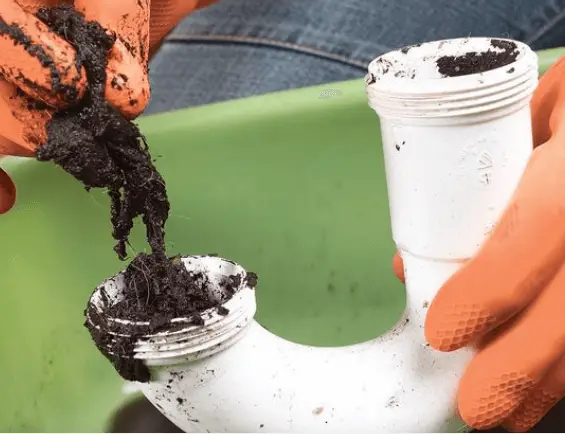




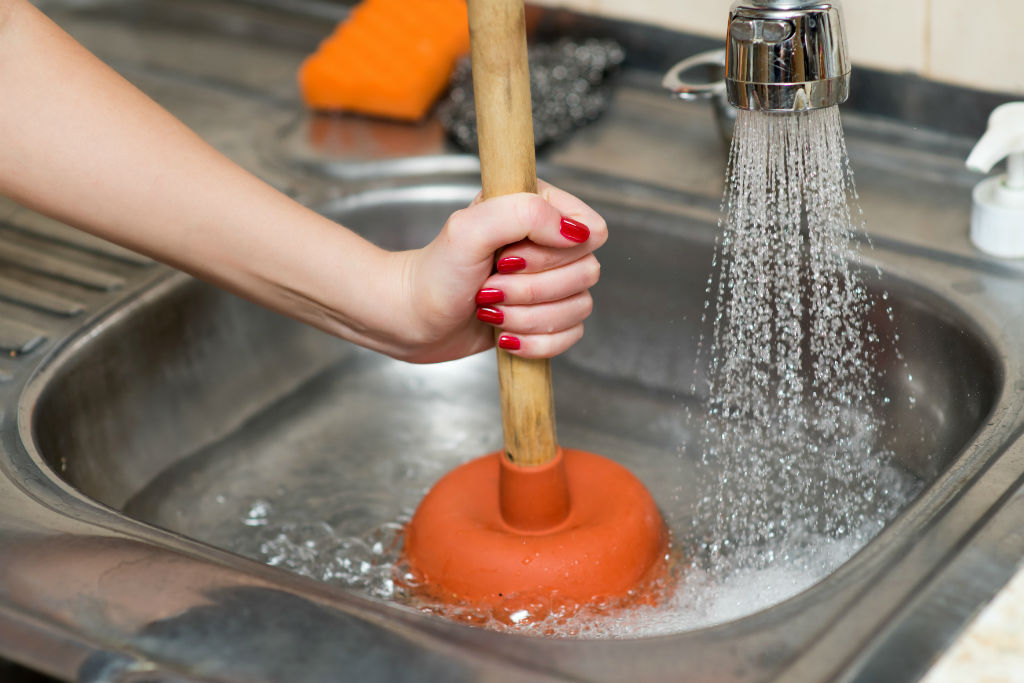
:max_bytes(150000):strip_icc()/freshen-and-unclog-drain-with-baking-soda-1900466-22-bbf940b70afa4d5abef0c54da23b1d3f.jpg)




